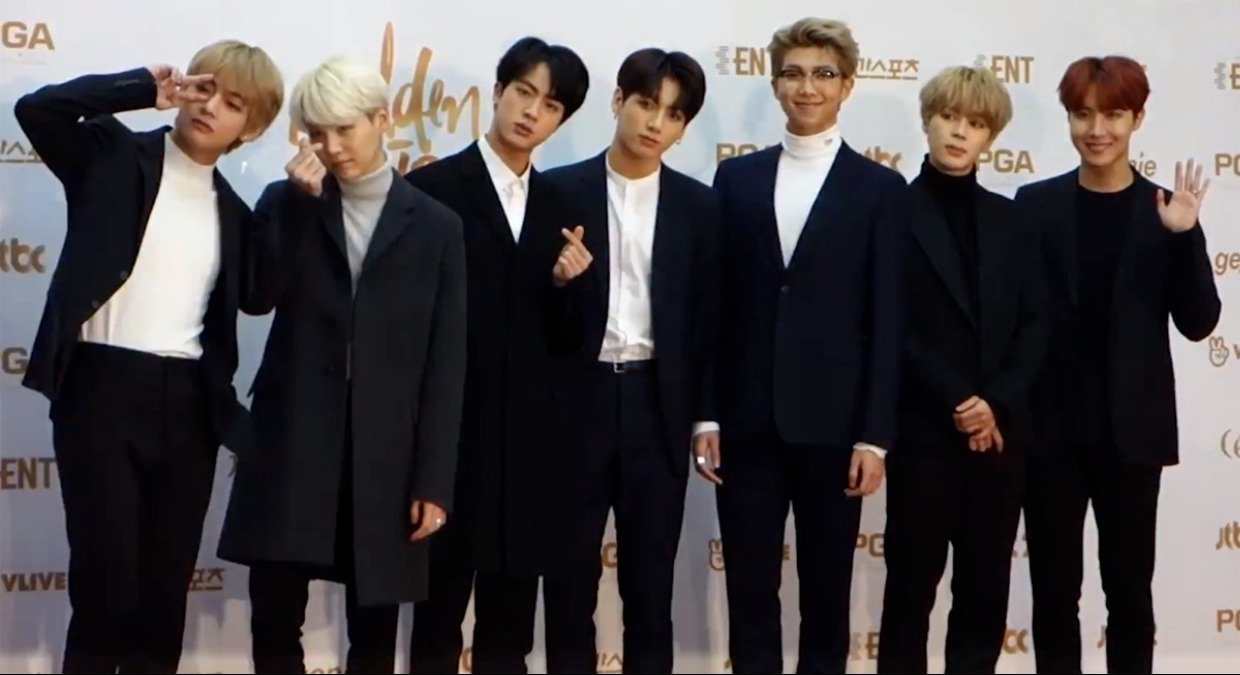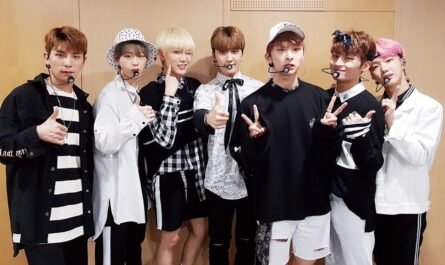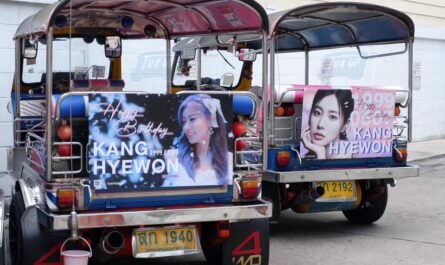‘New album pre-orders alone exceed 1 million copies.’
‘This year’s physical album sales are likely to exceed 70 million…’
As the popularity and influence of K-pop grow worldwide, the actual album market, which has been stagnant due to the strength of digital music, is reviving, and the good news is that it records the highest sales ever. But there are not only good aspects. It is a problem of the ‘overproduction’ of actual albums. Expressions such as ‘album gang’ and ‘fans cut’ show this problem well. ‘Album gang’ refers to the act of one fan buying the same physical album repeatedly.
It refers to the number of physical albums purchased to attend a fan signing event. Since one ticket to the fan signing event is included in each physical album, fans purchase at least several dozen or hundreds of albums. However, most of these physical albums are made of plastic. Plastics hurt the climate crisis by emitting greenhouse gases in all processes, from production to incineration and recycling.
A waste levy is a system that requires companies that make or import items that are difficult to recycle to bear the cost of waste disposal. These include CDs in albums and ‘goods’ made of plastic that is difficult to recycle (products made by the entertainment company for fans of the singers they belong to). The total waste charge imposed by the government on seven record manufacturers, including large entertainment companies, between 2018 and 2021 was 19,1458,000 won.
The plastic wrapper that wraps the album, CD case, etc., is subject to the Producer Responsible Recycling (EPR) system. IFAR is a system in which producers must recycle more than a certain amount of products. Still, if the producers cannot directly recycle their products, part of the cost for product recovery and recycling is charged. According to the data from Rep. Woo Won-sik from the Ministry of Environment, the total amount of ipiaar contribution related to physical albums from 2018 to 2021 was 153.8 million won.
Most of the waste levy and ipir levy related to physical albums are levied on plastics. The ‘plastic waste tax’ imposed by record labels over the past four years is 345,258,000 won, including the waste charge and the IFAR contribution. Of the 15 companies that reported waste to the government or were subject to government investigations, eight agencies with an annual output of fewer than 10 tons (about 580,000 CDs) were excluded from the levy.
This is insignificant compared to agencies’ revenues from selling albums. Album sales of 22.82 million copies in 2018 doubled in 4 years to 57.08 million copies last year (based on the top 400 circle chart, including overseas sales).
This led to an increase in the company’s sales. Hive, SM, and YG counted as the ‘Big 3’, last year’s operating profits of Hive, SM, and YG were 190.3 billion won, 68.5 billion won, and 50.6 billion won, respectively. Although they made huge profits by selling tens of millions of plastic records, the plastic waste tax imposed on these companies over the past four years was only 120,219,420 won for Hive, 68,071,248 won for SM, and 27,244,1063 won for YG. In the case of Hive, until the beginning of this month, it was omitted from the target of the waste levy, and only about 55 million won of the first contribution (recycling levy) was imposed.
Environmental groups and experts first pointed out that the government’s operation of the waste levy and ipiarje is insufficient to realize the purpose of the resource-saving and recycling promotion system.
The waste charge per 1 kg of CD is 150 won, a small standard amount, and the scope of reduction and exemption is wide, such as when the annual output is 10 tons (about 580,000 pieces, excluding overseas sales) or more. Na-Yoon Baek, an activist in charge of resource circulation at the Korea Federation for Environmental Movement, said, “It is easy for companies to think that a solution can be solved with only a small amount of money.”
The loopholes in the system are also revealed in poor management. In the case of the Ministry of Environment’s data related to physical albums, the companies charged by year were irregular, and another large agency, such as JYP Entertainment, was omitted altogether. The Ministry of Environment answered a member’s inquiry about why there are companies that were excluded from the levy even though they are large entertainment companies. We are currently investigating the remaining six locations.”
The Ministry of Environment also hurriedly imposed the 2021 waste levy on Hive and JYP on the 11th as requests for data and inquiries from the parliamentarian’s office continued. The total waste levy in 2021 is 188 million won, of which the two agencies account for about 78% (Hive 64,979,420 won, JYP 13,461,460).
Regarding the company’s omission of the IFAR contribution, “There are cases where (the company) does not realize that it is subject to the system and does not implement it. If non-compliance is confirmed through investigation, a recycling surcharge will be imposed later.” According to the Ministry of Environment’s data, YG and Universal Music were the first to pay the IFAR contribution in 2014. Following this, Kakao and Sony Music joined in 2018, and Cube Entertainment joined the payment this year.
However, according to the investigation results, Hive and SM did not fulfill their obligation to contribute to the IFAR. As a result, they were also charged a ‘recycling charge’ that applied an additional amount (15-30%) depending on the amount of non-fulfillment of the recycling obligation.
As voices claiming the need to respond to the climate crisis have emerged among K-pop fans, they are presenting albums made from eco-friendly materials and physical album types excluding CDs. However, there are also voices of criticism that the ‘eco-friendly marketing’ of agencies is greenwashing (disguised environmentalism).
As the seriousness of climate change is emerging recently, agencies need an alternative.
There is a need to take responsibility for not only using recycled paper but also conducting new marketing other than albums and actively participating in recycling after purchasing an actual album.











